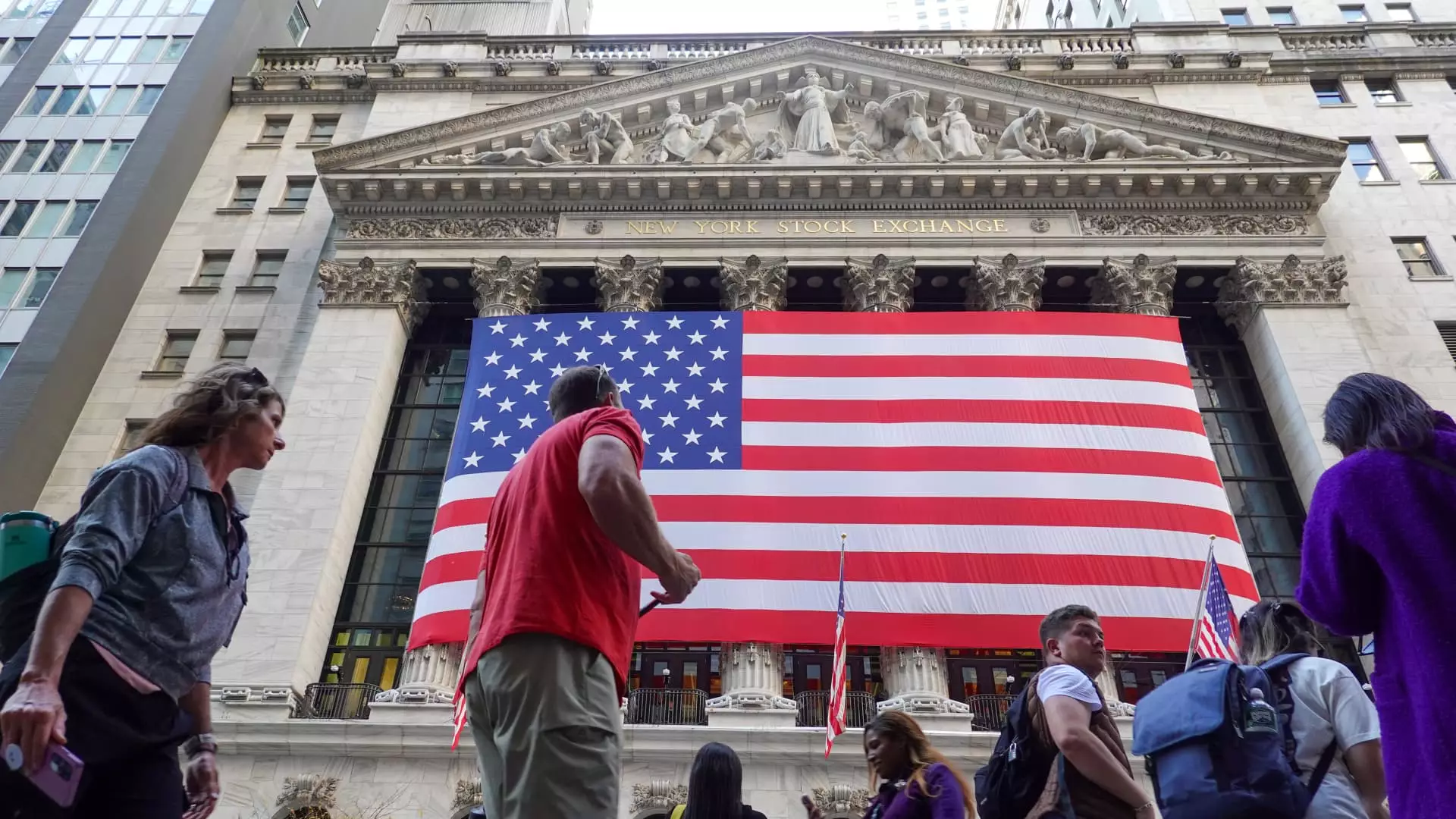In the recent volatility of the stock market, investors are seeking clarity as they navigate potential opportunities. Following a notable market drop influenced by the Federal Reserve’s recommendations, seasoned investors like Jim Cramer are making calculated moves in the stock market. With purchases made in high-profile companies such as CrowdStrike and Home Depot, these decisions reflect a strategic approach to perceived undervaluation. Cramer’s Charitable Trust has expanded its holdings, aiming to capitalize on current market weaknesses, amid an oversold landscape that many view as a buying signal.
The market’s recent downturn began after the release of the Job Openings and Labor Turnover Survey (JOLTS), which suggested stronger labor conditions than anticipated. This shift led to an increase in Treasury yields, coupled with fears that the Federal Reserve would respond with a hike in interest rates. Investors quickly reacted, causing a plunge in equities. However, analysis of the S&P 500 Short Range Oscillator indicated a significant oversold condition, reminiscent of market sentiments observed in early October 2023, which ultimately turned out to indicate a buying opportunity.
The oscillation point raises questions regarding market sentiment and the cyclical nature of investing. As fear grips market players during instances of heightened volatility, this can paradoxically create opportunities. Investors familiar with such trends are reminded that patience and calculated investment are essential during these periods of panic.
Cramer’s recent decision to restrict his Charitable Trust’s portfolio to 200 shares of CrowdStrike exemplifies a proactive stance in cybersecurity, a sector that has proven resilient amidst ongoing digital threats. With shares priced approximately at $354, CrowdStrike’s pullback since its third-quarter earnings report in November offers a unique entry point for those looking to harness the potential of a leading cybersecurity firm.
As digital transformation accelerates across industries, the demand for robust cybersecurity solutions is likely to continue its upward trajectory. Furthermore, Cramer’s trust in CrowdStrike is underscored by its market positioning as a “best-of-breed” provider within cybersecurity. Understanding these dynamics is vital, especially when assessing long-term investments in tech-oriented stocks that cater to an increasingly digitized world.
In contrast to the tech sector, investing in Home Depot represents a more nuanced strategy grounded in real estate’s current challenges. The recent purchase of 25 shares at around $390 demonstrates Cramer’s belief in the stability of one of the major players in home improvement, despite the sector’s difficulties highlighted by the Fed’s statements regarding interest rates.
For Home Depot, the landscape is affected by rising bond yields and adjusted expectations around housing turnover and homebuilding activity. Particularly telling is the anticipated decline in housing turnover to 30-year lows, which significantly impacts associated housing and home improvement stocks. Despite these headwinds, Cramer remains optimistic by viewing the substantial decline (a 10% drop since December) as an opportunity to invest at a better price point.
Moreover, the Fed’s announcement regarding fewer rate cuts signals a need for long-term patience in this market sector. Investors choosing to jump into stocks like Home Depot must contend with fluctuating market dynamics while weighing the potential for recovery in housing fundamentals by 2025.
As investors reflect on Cramer’s moves in CrowdStrike and Home Depot, the broader message resonates: strategic trading requires a blend of discipline, market knowledge, and timely reactions to market signals. With the overarching principle of capitalizing on market oversold conditions, both stocks offer the potential for robust long-term value amid immediate market uncertainties. As events unfold, remaining informed and strategically agile will be paramount for successful investment endeavors in the volatile economic landscape ahead.
These decisions not only exemplify Jim Cramer’s investment philosophy but also highlight a disciplined approach essential for navigating a complex market prone to rapid changes and uncertainties.

